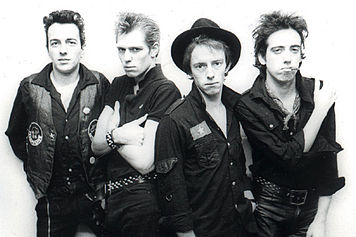Spring Break begins today, a Saturday. A blessed relief?
Saturday took me away from the shop, away from the Scherzhauserfeld Project, and back into a state of melancholy. Even before I had left the project, silence had fallen upon it, broken only by the rattle of crockery and cutlery to be heard through the windows, a silence that meant one thing: it is Saturday, nobody is at work, people are lying around in their apartments on their sofas or their beds, not knowing what to do with their free time. The afternoon silence lasted until three, when they began to quarrel, and then some of them would rush out of their houses and into the open air, very often swearing and screaming, desperation written all over their faces. I always felt that Saturday afternoon was a dangerous time for everyone. The mood of desperation, to which most of the inhabitants fell victim to the most alarming extent, resulted from dissatisfaction with themselves and with everything and everybody, as well as from the sudden awareness that they were being exploited and that their lives were entirely pointless. Most people are used to their work, to some kind of regular occupation; and when work stops they momentarily lose their sense of purpose and succumb to a state of morbid despair. This is as true of the individual as it is of the mass. They imagine that they are recouping their energy, but in reality they find themselves in a vacuum, and this drives them half-demented. The result is that on Saturday afternoons they get the maddest ideas and everything they attempt turns out unsatisfactorily. They start moving furniture around--wardrobes and chests of drawers, tables and armchairs, even their beds. They take their clothes out on their balconies to brush them, and they clean their shoes as if they had suddenly gone mad. The women get up on the window-sills, and the men go down to the cellar and stir up the dust with their brooms. Whole families take it into their heads that they must tidy up their living quarters, and so they fall upon the contents of their apartments and try to make order, but they succeed only in creating disorder in their minds. Or else they take to their beds and nurse their ailments, taking refuge in their diseases, permanent diseases which they become aware of again on Saturday afternoons when work is over. The doctors know all about this and are more in demand on Saturday afternoons than at any other time. When work stops, the diseases start; there are sudden pains, the well-known Saturday headache, the Saturday afternoon palpitations, fainting fits, outbreaks of fury. The diseases are suppressed and assuaged during the week by working or being occupied in some way. On Saturday afternoon, they make themselves felt again, and the sufferer is at once thrown off balance. And if he has stopped work at midday and become aware soon afterwards of his true situation, which is in every case a hopeless situation, no matter who he is, what he is, or where he is, he has to admit to himself that he is unhappy, even if to others he pretends the opposite. The fact that there are a few happy people who are not thrown off balance by Saturday only proves the rule. Fundamentally Saturday is a day people fear even more than Sunday, for on Saturday they know that Sunday is still to come, and Sunday is the most terrible day of all; but Sunday is followed by Monday, a working day, and this makes it endurable. Saturday is frightful, Sunday is terrible, and Monday brings release. To pretend that this is not so is malevolent and stupid.
--Thomas Bernhard, Gathering Evidence
Subscribe to:
Post Comments (Atom)

No comments:
Post a Comment